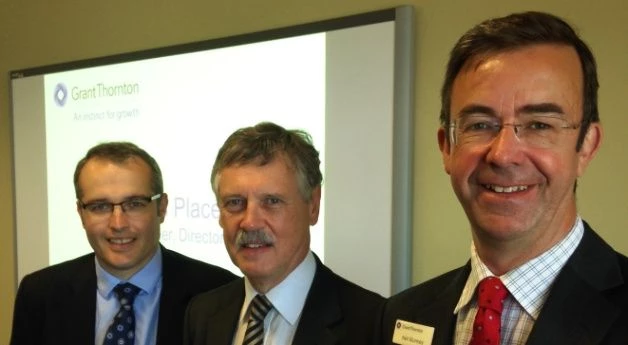
Partner Article
IFB showcases Liverpool’s maritime progress
The opening week of the International Festival for Business has been hailed as a ‘great success’ by Jim Teasdale, chief executive of Mersey Maritime Group, which represents 1,700 firms operating in the sector across Liverpool City Region.
The festival, launched on Monday by Prime Minister David Cameron, has a maritime, energy and logistics theme in its opening phase.
Mersey Maritime’s programme has included ‘Ports As Places’, hosted in conjunction with Grant Thornton LLP, which provided delegates with an economic comparison of Liverpool, Southampton and Hull as port cities.
Jim Teasdale said: “Liverpool is founded on its maritime trade so it’s appropriate that the International Festival for Business began with this theme. There’s been a lot of positive feedback from our members. The IFB is helping send a positive message to investors around the globe that the maritime sector on Merseyside is booming.”
Around 30 set piece events are taking place under the IFB’s maritime, logistics and energy (MLE) theme. Delegates at the Ports As Places gathering, held at Grant Thornton’s offices in The Liver Building, heard that the Liverpool city region maritime sector currently employs 28,000 people – a number set to double over the next decade through projects such as Liverpool2 and Wirral Waters.
Grant Thornton provided a detailed economic analysis of Liverpool, Hull and Southampton through its new Place Analytics service. The research compared the cities across 19 different economic and social factors, including productivity, prosperity, deprivation and connectivity.
John Fisher, a director within Grant Thornton’s Government & Infrastructure Advisory, told delegates the three cities share almost identical economic profiles and challenges, in terms of business, skills and the physical environment.
Liverpool had performed significantly better than both Hull and Southampton in terms of employment growth over a 10-year period to 2012. But the City region still faced challenges in terms of skills of the local workforce when compared to the overall national picture, which is critical to future growth and increased productivity in the local economy.
The research highlighted the importance of knowledge intensive sectors, which now account for almost 20 per cent of employment in Liverpool City Region.
John Fisher: commented: “Throughout the global economy the critical structural trend is the growth of the knowledge economy. Our industrial structure profile assesses Liverpool from this knowledge economy basis. Employment in knowledge-driven production is well above the national median, with the Liverpool district ranking in the top 20 per cent nationally.”
Jim Teasdale of Mersey Maritime echoed the point. “Nurturing young talent is key to a stable and successful Merseyside and we will continue to work with employers to help them identify the young people they need now to become the skilled workforce of tomorrow.”
He pointed out that a strong partnership between existing schools, colleges and universities is developing a Liverpool SuperPort Academy, part of a drive to train an army of skilled workers to help drive the region’s £1.8bn Superport project.
“I’m seeing the MLE thematic programme in terms of opportunity,” said Jim Teasdale. “It will provide a catalyst for more joined up thinking, better planning of what’s needed for growth, and something that help create opportunities in terms of skills development and jobs.”
This was posted in Bdaily's Members' News section by Simon Malia .








 Why community-based care is key to NHS' future
Why community-based care is key to NHS' future
 Culture, confidence and creativity in the North East
Culture, confidence and creativity in the North East
 Putting in the groundwork to boost skills
Putting in the groundwork to boost skills
 £100,000 milestone drives forward STEM work
£100,000 milestone drives forward STEM work
 Restoring confidence for the economic road ahead
Restoring confidence for the economic road ahead
 Ready to scale? Buy-and-build offers opportunity
Ready to scale? Buy-and-build offers opportunity
 When will our regional economy grow?
When will our regional economy grow?
 Creating a thriving North East construction sector
Creating a thriving North East construction sector
 Why investors are still backing the North East
Why investors are still backing the North East
 Time to stop risking Britain’s family businesses
Time to stop risking Britain’s family businesses
 A year of growth, collaboration and impact
A year of growth, collaboration and impact
 2000 reasons for North East business positivity
2000 reasons for North East business positivity